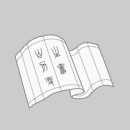
英国文学与文化
全新正版 极速发货
¥ 12.35 4.9折 ¥ 25 全新
仅1件
广东广州
认证卖家担保交易快速发货售后保障
作者李成坚,邹涛 主编 著作 著
出版社中国人民大学出版社
ISBN9787300101347
出版时间2009-03
装帧平装
开本16开
定价25元
货号11151226
上书时间2024-11-22
- 最新上架
商品详情
- 品相描述:全新
- 商品描述
-
目录
Part One
Chapter One The Bible and British Literature
Introduction to the Bible
Section One:Important Biblical Characters
Selected Reading:Paradise Lost by John Milton
Section Two:Important Biblical Themes——Christian Virtues
Selected Reading:The Merchant of Venice by William Shakespeare
Section Three:Biblical Imagery
Selected Reading:Tess of the dUrbervilles by Thomas Hardy
Chapter Two Greek Mythology and British Literature
Introduction to Greek Mythology
Greek Mythology in British Literature
Selected Readings
Pygmalion by George Bernard Shaw
Sonnet XXXIII:Methought I Saw My Late Espoused Saint by John Milton
The Garden by Andrew Marvell
Chapter Three British Society and British Literature
Section One:English Renaissance and Humanism
Selected Reading:Sonnet 18 by William Shakespeare
Section Two:Metaphysical Poetry and English Society in the Early 17 Century
Selected Reading:A Valediction:Forbidden Mourning by John Donne
Section Three:Literature in English Revolution and Restoration Period
Selected Reading:Pilgrims Progress by John Bunyan
Section Four:Neo-Classicism
Selected Reading:Epigrams by Alexander Pope
Section Five:English Romanticism
Selected Reading:The Isles of Greece by Lord Byron
Section Six:Critical Realism
Selected Reading:Oliver Twist by Charles Dickens
Section Seven:Aestheticism
Selected Reading:The Picture of Dorian Gray by Oscar Wilde
Section Eight:British Modernism
Selected Reading:Araby by James Joyce
Part Two
Chapter Four British Poetry
Key Questions to the Art of Poetry
Sample Analysis :The Lake Isle oflnnisfree by William Butler Yeats
Selected Readings
The Passionate Shepherd to His Love by Christopher Marlowe
Sonnet 43 by William Shakespeare
Death, Be Not Proud by John Donne
A Red Red Rose by Robert Bums
I Wandered Lonely as a Cloud by William Wordsworth
When We Two Parted by George Gordon Byron
Ozymandias by Percy Bysshe Shelley
The Eagle:A Fragment by Alfred Tennyson
Do Not Go Gentle into that Good Night by Dylan Thomas
Chapter Five British Fiction
Key Questions to the Art of Fiction
Selected Readings
Robinson Crusoe by Daniel Defoe
Pride and Prejudice by Jane Austen
Jane Eyre by Charlotte Bronte
Sons and Lovers by D. H. Lawrence
Chapter Six British Drama
Key Questions to the Art of Drama
Selected Readings
Hamlet by William Shakespeare
The Merchant of Venice by William Shakespeare
The Importance of Being Earnest by Oscar Wilde
Waiting for Godot by Samuel Beckett
参考文献
内容摘要
本书由上篇文化篇和下篇文学篇组成。上篇着重从圣经、希腊神话和英国社会的角度,来解读英国文学作品和文学史发展特征;下篇按文学的三大主要文类编排,旨在指导学生欣赏英国诗歌、英国小说和英国戏剧。
每章由导读、文本和思考题组成,既有总体引导,又有文本例释,配以练习题,以深化理解。教材内容丰富、选材广泛,可作为高校非英语专业选修课程的教材或外语学院英语专业英国文学课程的参考书,也是广大英语自学者和英国文学爱好者的可选读物。
精彩内容
Chapter Two Greek Mythology and British Literature
Introduction to Greek Mythology
II Origins,Sources and Development of Greek Mythology
2.1 The Origin of Greek Mythology
Linguists have concluded that some names of Greek deities,including Zeus,can be traced back to gods worshiped by speakers of the Proto-Indo-European language,the common ancestor of the Greek,Latin,and Sanskrit languages。However,it would be misleading to regard the people who may have spoken this language as the only contributors to Greek mythology,for many other elements were added later.
Archaeologists have shown that many of the places where mythical events presumably took place correspond to sites that had historical importance during the Mycenaean period of Greek history (second half of the 2nd millennium BC)。
Scholars thus consider it likely that the Mycenaeans made a major contribution to the development of the stories,even if this contribution is hard to demonstrate in detail。Some scholars have argued that the Minoan civilization of Crete also had a formative influence on Greek myths。The myth of the Minotaur confined in a labyrinth in the palace of King Minos,for example,might be a memory of historical bull-worship in the labyrinthine palace at Knossos on Crete。However,there is little evidence that Cretan religion survived in Greece。Moreover,ancient inscriptions have not confirmed thatMinos ever existed outside of myth.
Scholars have shown that Middle Eastern influences were more influential to ancient Greek mythology than Cretan myths。Greek mythology owed much to cultures in Mesopotamia and Anatolia,especially in the realm of cosmogony (origin of the universe) and theogony (origin of the gods)。To take one example,a clear parallel exists in an early Middle Eastern myth for Greek poet Hesiod's story about the castration of Uranus by his son Cronus and the subsequent overthrow of Cronus by his son Zeus。
……
相关推荐
— 没有更多了 —






















以下为对购买帮助不大的评价